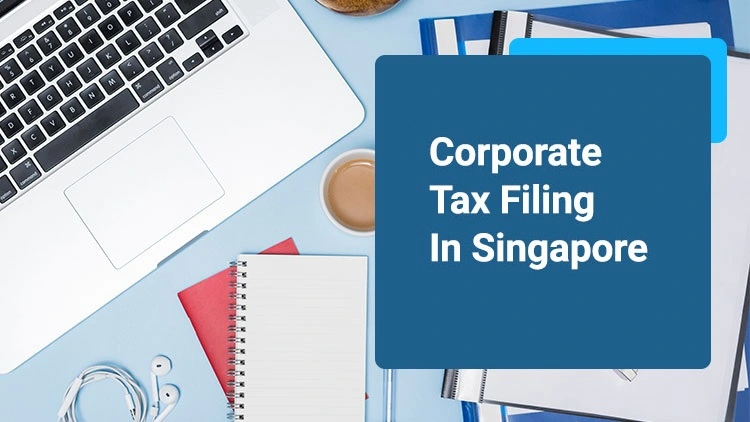Singapore is the top business destination for incorporating your company. Apart from being the top-ranked country for “ease of doing business” for ten consecutive years, the Singapore corporate tax rate is something that attracts millions of business owners to register their companies in Singapore.
Another great thing about corporate tax in Singapore is that it is levied on the profit and not the revenue. Along with the lucrative tax benefits, the government of Singapore has also made it very simple to file your corporate taxes. You will need to fulfill four requirements while filing your corporate tax in Singapore.
4 Requirements for Filing Your Corporate Tax in Singapore
1. Financial Statement Preparations
The first step of filing your corporate taxes is to prepare your financial statements. The Financial Reporting Standards of Singapore dictate the guidelines for filing your annual financial statements. The company must make these financial statements according to its financial statements during the year. Though the Singapore corporate tax rate is at 17%, you can significantly reduce it by including all your business expenses in your financial statements.
The frequency of your accounting transactions determines what kind of financial bookkeeping you can follow. If your company performs frequent accounting transactions, it’s best to update your ledger every month. If you don’t perform regular monthly transactions, you can opt for quarterly or annual bookkeeping. Here are the financial statements that need to be present in your tax filing:
- Profit and loss account
- Balance sheet
- Equity change statements
- Cash flow statements
2. Estimated Chargeable Income (ECI) Filing
The estimate of chargeable income or ECI needs to be filed with the IRAS within three months before the financial year ends. Even if their ECI is zero, companies must file a “NIL” ECI to the IRAS. If your company’s annual income is less than $5 million in the current financial year, you can waive the ECI by filing a NIL ECI for the current assessment year.
3. Financial Statements Audit
Once your company’s financial statements are drafted, you need to audit them to see if the company meets certain conditions.
- The total annual revenue exceeds S$10 million,
- Total assets exceed S$10 million
- The company has 50+ employees
If any two of these three conditions are met, your company needs to audit the financial statements.
4. Annual General Meeting (AGM)
AGM is a yearly meeting of the company’s all stakeholders. The company directors utilize AGM to present the company’s annual financial reports that contain information about the company’s growth and financial performance.
Here are some of the AGM rules that private limited companies need to follow:
- The first AGM must be held within the first 18 months of the company’s incorporation.
- After the first AGM, AGMs should be held at shorter intervals (time between these annual meetings should not exceed 15 months).
According to the Singapore Company Law, if all the stakeholders agree on dispensing the AGM, the company can file the annual returns without conducting the meeting.
The ACRA and IRAS can file a non-compliance fine of S$300 and penalties against the companies that-
- Do not hold yearly AGMs
- Do not follow the deadline to submit financial statements, ECI, and Annual Return
- Present wrong financial statements
Despite having low corporate tax rates, many companies face penalties as they fail to adhere to the government rules and regulations. It’s best to hire professional corporate tax filing firms to avoid non-compliance issues and receive more tax benefits.
